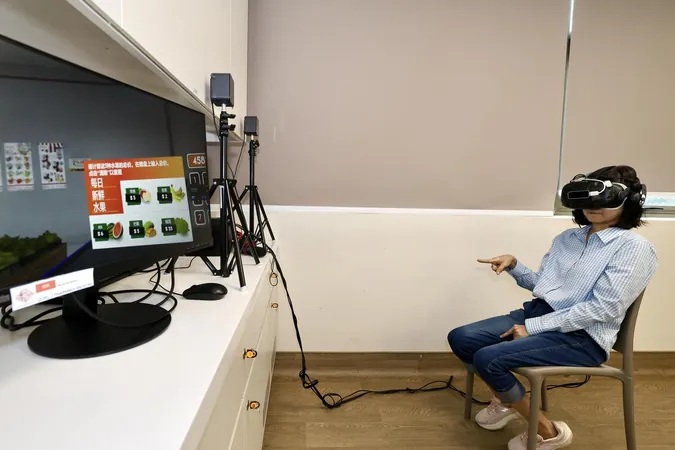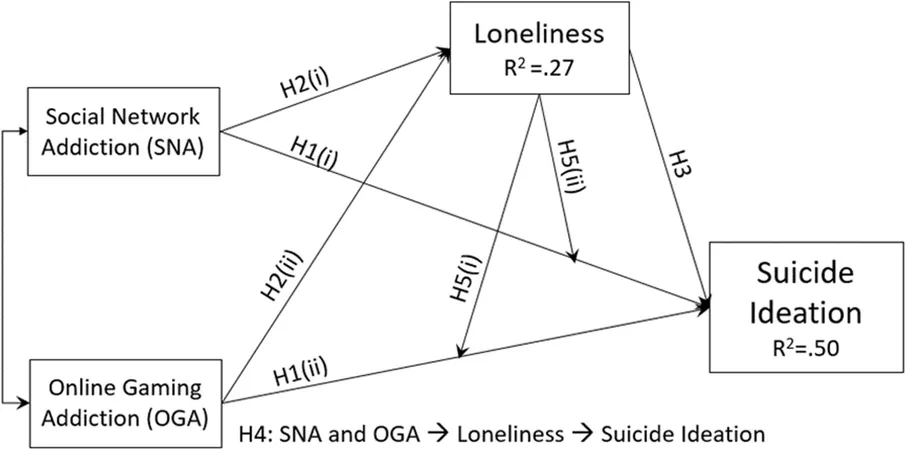
Groundbreaking VR Tool Detects Pre-Dementia with Near 90% Accuracy!
2025-08-05
Author: Wei Ling
Imagine a virtual reality (VR) tool that not only immerses you in a digital world but also has the potential to save lives by detecting early signs of dementia. In Singapore, a revolutionary application named Cavire-2 is doing just that!
What is Cavire-2?
Developed by SingHealth Polyclinics in collaboration with local VR firm FXMedia, Cavire-2 is engineered to assess the cognitive functions of seniors through various interactive scenarios. This innovative tool evaluates six critical cognitive areas: memory, attention, language, perceptual-motor skills, social cognition, and executive functions.
How Does It Work?
Set against the backdrop of everyday locations like a Housing Board flat or a bustling supermarket, users engage in tasks such as calculating fruit prices or selecting the right bank notes, all while being distracted by a crying baby. This real-life context aids in understanding how individuals focus amidst daily challenges.
Accuracy that Can't Be Ignored!
According to recent studies published in the journal Virtual Reality, Cavire-2 boasts a stunning accuracy rate of 88.9% in distinguishing between cognitively healthy individuals and those showing signs of mild cognitive impairment. Moreover, it accurately identifies healthy individuals 70.5% of the time!
Why This Matters?
As Singapore's population ages—and with predictions indicating that one in four citizens will be over 65 by 2030—detecting cognitive impairment is more crucial than ever. Currently, approximately one in eight Singaporeans experiences mild cognitive impairment, with a significant risk of developing Alzheimer's disease.
A More Realistic Approach to Assessing Cognition
Traditional assessment methods like the Montreal Cognitive Assessment (MoCA) rely heavily on pen-and-paper questionnaires, lacking ecological validity—meaning they don't fully capture how people perform in real-world situations. Professor Tan Ngiap Chuan, a director at SingHealth Polyclinics, emphasized that Cavire-2 addresses this gap by immersing users in realistic daily scenarios.
Community Engagement and Cultural Relevance
Lim Jie En, a research officer at SingHealth, noted that Cavire-2 is designed with culturally relevant scenarios, ensuring that it resonates with the daily lives of Singaporeans. This focus aids in providing a more accurate assessment of individual cognitive abilities.
The Future of Cognitive Assessment
Plans to introduce Cavire-2 at SingHealth Polyclinics are on the horizon, although a specific timeline has yet to be announced. Following recent blind tests conducted with over 280 participants, the tool demonstrated remarkable reliability, providing consistent results across multiple assessments.
Real Voices, Real Stories!
One participant, Goh Ai Lian, initially felt intimidated by the prospect of testing her cognitive abilities. After undergoing the Cavire-2 assessment, Goh discovered she did not have mild cognitive impairment, highlighting the tool's user-friendly and respectful nature.
Next Steps and Innovation Ahead!
Looking forward, the next phase of Cavire-2's development will involve evaluating its effectiveness in monitoring interventions designed to slow down the onset of dementia for those at risk. Collaborations with healthcare professionals will ensure the scenarios remain relevant and effective.
With the potential to transform cognitive assessments and interventions, Cavire-2 is a game-changer in the fight against dementia and a beacon of hope for families affected by mild cognitive impairment.



 Brasil (PT)
Brasil (PT)
 Canada (EN)
Canada (EN)
 Chile (ES)
Chile (ES)
 Česko (CS)
Česko (CS)
 대한민국 (KO)
대한민국 (KO)
 España (ES)
España (ES)
 France (FR)
France (FR)
 Hong Kong (EN)
Hong Kong (EN)
 Italia (IT)
Italia (IT)
 日本 (JA)
日本 (JA)
 Magyarország (HU)
Magyarország (HU)
 Norge (NO)
Norge (NO)
 Polska (PL)
Polska (PL)
 Schweiz (DE)
Schweiz (DE)
 Singapore (EN)
Singapore (EN)
 Sverige (SV)
Sverige (SV)
 Suomi (FI)
Suomi (FI)
 Türkiye (TR)
Türkiye (TR)
 الإمارات العربية المتحدة (AR)
الإمارات العربية المتحدة (AR)